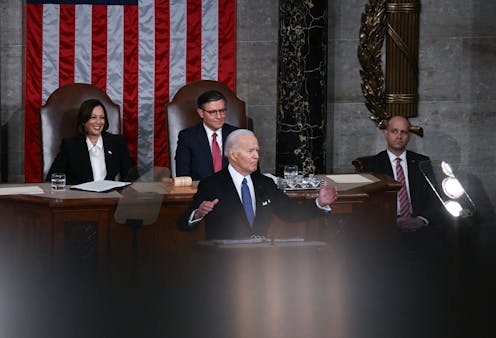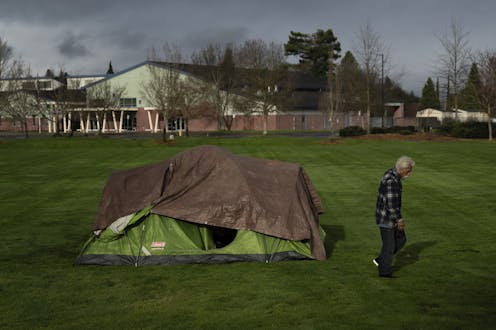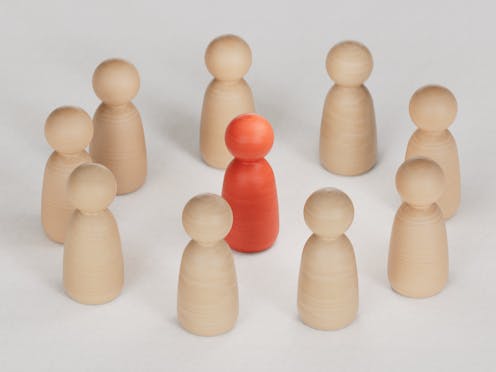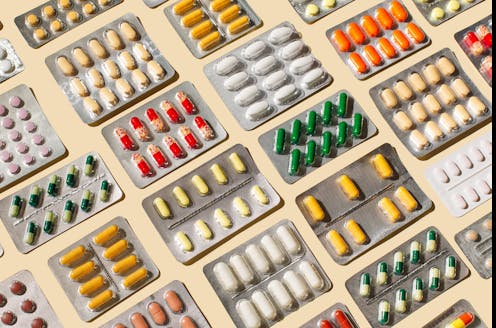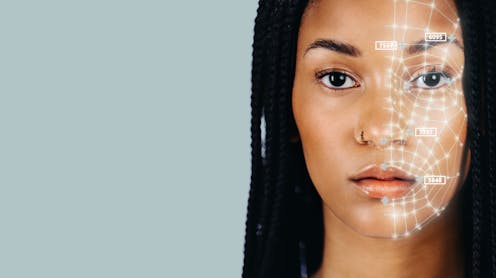Brain stimulation offers hope for depression, but don't try it at home
 For people with severe depression, incorrect application can worsen their condition or cause memory loss.Nathan O'Nions/Flickr, CC BY-NC
For people with severe depression, incorrect application can worsen their condition or cause memory loss.Nathan O'Nions/Flickr, CC BY-NCAround 350 million people worldwide have depression. Antidepressant medications are often prescribed to treat the condition, alongside talking therapies and lifestyle changes such as regular exercise.
But a substantial proportion of people either don’t respond to antidepressants, or experience such significant side effects that they’d prefer not to take them.
In search of alternative solutions, researchers around the world, including our team, are investigating transcranial direct current stimulation (TDCS) as an alternative treatment for depression. But this isn’t something you can safely try at home.
Unlike electroconvulsive therapy, TDCS uses very mild electric current to stimulate the brain and has few side effects. The mechanics of TDCS are quite simple, involving a battery, two leads and the electrodes through which the current is passed.
 Researchers are yet to fully understand the effects of varying stimulation approaches.Tinydevil/Shutterstock
Researchers are yet to fully understand the effects of varying stimulation approaches.Tinydevil/Shutterstock
The stimulation works by changing the activity of nerve cells in the brain. In depression, the left frontal areas of the brain are often less active than usual. TDCS stimulates this area to restore brain activity.
We’re still evaluating the effectiveness of TDCS, but so far studieshavefound that TDCS works better than a placebo (or simulated treatment) at reducing symptoms of depression.
When combined with the antidepressant medication sertraline (marketed as Zoloft in Australia), the combination TDCS-drug therapy works better than medication or TDCS alone.
Research has found that among people with depression, a course of TDCS can improve the brain’s “neuroplasticity”, which is the brain’s ability to learn and adapt to changes in the environment.
The therapy has a good safety profile – if administered by clinicians and researchers trained in stimulation technique and safety. Our research team has administered thousands of TDCS sessions without incident.
But this is not the case when TDCS is used in the “DIY” context, with DIY users trying to stimulate their own brains.
This phenomenon is often guided by online forums and websites dedicated to DIY TDCS. Users comment on their own experience and share tips on how TDCS can be used to treat their own depression. People with no medical training and limited understanding of TDCS self-treat their depression and advise others on treatment.
 Stronger is not necessarily better.Ian Ruotsala/Flickr, CC BY-NC-SA
Stronger is not necessarily better.Ian Ruotsala/Flickr, CC BY-NC-SA
So, what can go wrong?
The most obvious concern is that poor technique and improper electrode placement could cause skin burns.
What’s more concerning is the ability for TDCS to produce lasting changes in brain functioning. Depending on how TDCS is given, these changes could be good or bad.
A DIY user could, for example, cause lasting impairment to their thinking and memory. For people with severe depression, incorrect application could worsen their condition or induce a hypomanic (manic) episode.
When it comes to medications, it’s important to get the right dose and dosing schedule. That’s why this role falls to qualified clinicians and researchers. The same goes for TDCS: current intensity, electrode size and position, and the duration and frequency of the stimulation determine the effects in the brain.
The relationship between dosing, intensity and position is highlycomplex. This isn’t a simple case of “the stronger the better”. Even researchers are yet to fully understand the effects of varying stimulation approaches and much more research is needed.
As with other forms of treatment, TDCS is not suitable for everyone. In clinical research trials, participants are screened for suitability to receive stimulation and their likelihood of responding to treatment. The stimulation is carefully controlled and the participants’ mood is carefully monitored during and after the course of treatment.
 A substantial proportion of people don’t respond to antidepressants, or experience significant side effects.Divine Harvester/Flickr, CC BY-NC-SA
A substantial proportion of people don’t respond to antidepressants, or experience significant side effects.Divine Harvester/Flickr, CC BY-NC-SA
TDCS represents a promising future, where simple and cost-effective treatment for depression is possible, without drugs. Researchers worldwide are continuing to study this experimental treatment, which may one day become a conventional treatment for depression.
The acceptance and popularity of TDCS among the general community is encouraging. But TDCS is still experimental and isn’t safe to administer at home. DIY users are not trained in proper technique nor are they trained to identify, prevent or deal with unexpected outcomes.
If you’re interested in participating in our TDCS trials for depression, contact the research team at the Black Dog Institute for more information.
Colleen Loo has received a competitive research grant from the Stanley Medical Research Foundation for tDCS research in depression and a research grant from the Australian Health and Medical Research Council to conduct a clinical trial of tRNS, a related technology, in depression.
Kerrie-Anne Ho does not work for, consult to, own shares in or receive funding from any company or organisation that would benefit from this article, and has no relevant affiliations.





